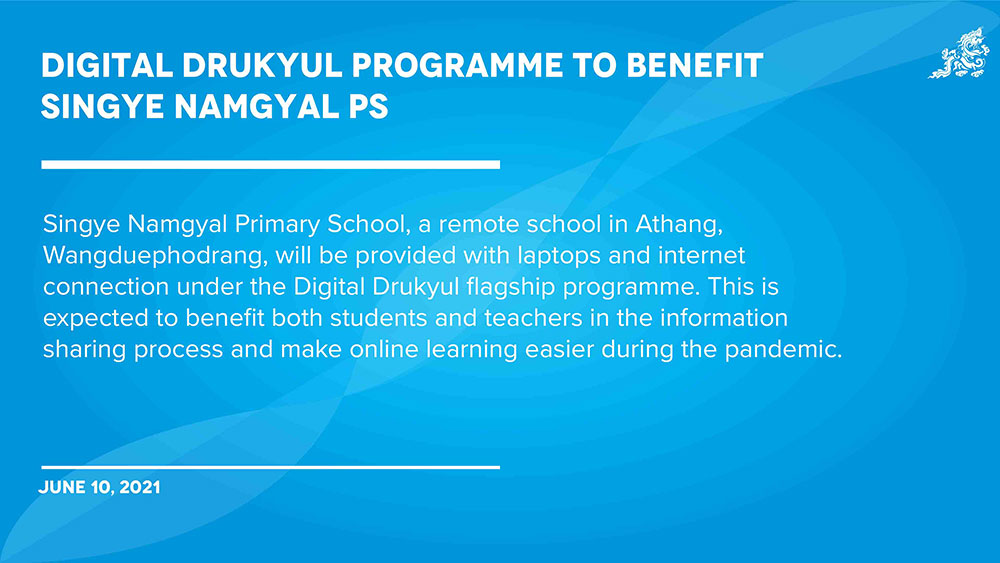The government’s Digital Drukyul flagship programme would provide laptops and internet connection to a remote school in Athang gewog, Wangduephodrang.
Singye Namgyal Primary School received five computers last year from the dzongkhag and would receive 10 laptops through the flagship programme and Internet connectivity.
This is expected to benefit students and teachers in improving teaching quality and information sharing process.
The school, which caters to students who come from Athang’s remote chiwogs, Lawa-Lamga and Rukha don’t have access to internet connection today. The chiwogs are connected with 2G network with a solar-powered tower in Domsang in Daga gewog.
The school’s officiating principal, Namgay Wangchuk, said fiber optic cable installation had completed in the school.
He said without internet connection, students lagged behind in terms of education quality. “Internet is really important. With the new curriculum guidelines, which mostly requires Internet, students would suffer if there is no internet connect.”
Teachers in the school also face major challenges in providing information to the ministry and the dzongkhag.
Road to Rukha and Lawa-Lamga chiwogs are blocked frequently during monsoon. The chiwogs are located more than 90km away from Bajo.
Namgay Wangchuk said that teachers travelled to Taksha, more than 16km away from school, on foot when roads were blocked during monsoon.
He said the journey took about an hour in vehicle, but more than four hours on foot.
With the aim to harness the power of ICT to transform Bhutan into a smart and inclusive society, the flagship programme was approved during the financial year 2019-2020. Construction of ICT labs and installation of optic fibre cables are underway in school in Wangduephodrang through the programme.
Wangdue dzongkhag’s chief education officer, Pema Dorji, said that apart from schools in four highland gewogs of Phobjikha, Bjena, Sephu and Ruebisa, works to construct ICT labs and connecting them with optic fibre is expected to complete before July this year in other schools. “We have completed almost 70 percent of all work.”
By Phurpa Lhamo | Wangdue
Edited by Tashi Dema


